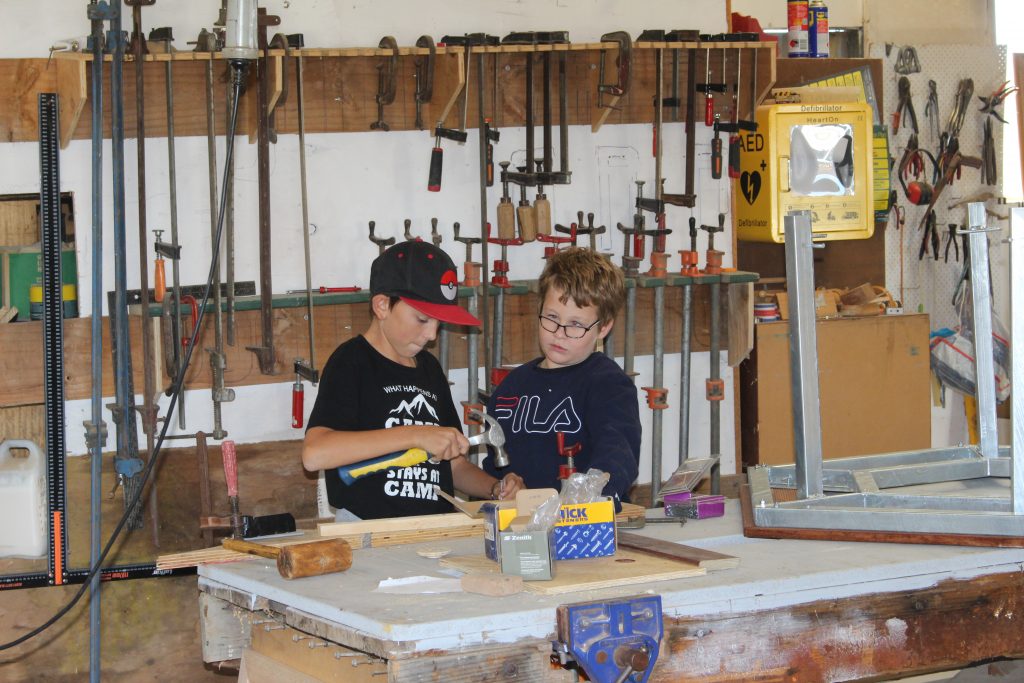Foundation for Rural & Regional Renewal (FRRR)
Thirty-four local groups and not-for-profits that delivered food and care hampers to regional communities during the height of the 2021 COVID-19 restrictions will share in $300,000 from the NSW Government’s COVID Regional Community Support (CRCS) program.
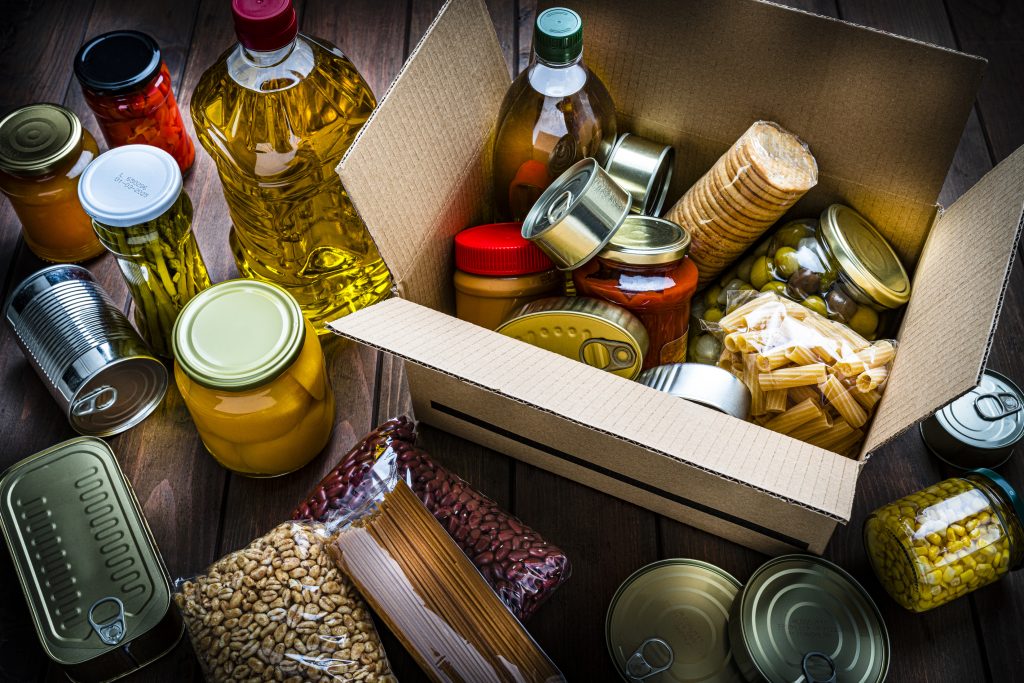
Minister for Emergency Services and Resilience and Minister for Flood Recovery Steph Cooke said more than 72,000 hampers were delivered to residents in regional and rural parts of NSW, including Ballina, Tweed Heads, Leeton and Albury.
“These groups and organisations dropped everything and dipped into their own funds to support isolated residents during last year’s COVID-19 restrictions by partnering with Resilience NSW to prepare and deliver food, essential items and relief packs to those in need,” Ms Cooke said.
“The $300,000 will cover expenses like fuel, couriers, and logistics costs, helping these groups and organisations to continue their wonderful work into the future, including at the Ballina Hot Meal Centre which is using its $5,024 grant to purchase new freezers.”
Each grant being provided through the CRCS program ranges from $1,000 to $30,000 and is administered by the Foundation for Rural & Regional Renewal.
Foundation for Rural & Regional Renewal CEO Natalie Egleton said the funding recognises the critical role that local community groups played during the pandemic.
“We’re delighted that 23 per cent of applications are from Indigenous community groups, all of which played such a vital role in ensuring that their community members were cared for, and we are pleased to be able to support them with this funding,” Ms Egleton said.
Applications are currently being accepted for grants of up to $50,000 for capacity building initiatives, such as attracting and retaining volunteers and staff, enhancing governance skills, building digital capacity and creating partnerships that foster stronger, more resilient communities.
See the full list of recipients below:
| Organisation | Locations | Grant |
|---|---|---|
| Agape Outreach Incorporated | Tweed Heads - Byron Bay | $1,681 |
| Albury Wodonga Regional Foodshare | Albury | $13,500 |
| Allambi Care Limited | Lake Maquarie - Warners Bay - Central Coast - Cessnock - Newcastle | $7,000 |
| Armidale / Uralla Meals On Wheels Incorporated | Armidale | $3,183 |
| Ballina Hot Meal Centre Incorporated | Ballina | $5,024 |
| Belong Blue Mountains Incorporated | Blue Mountains | $1,000 |
| Camden Haven Community at 3 | Lakewood | $1,125 |
| CatholicCare Social Services Hunter-Manning | Newcastle - Tareer - Forster - Maitland | $1,977 |
| Christian Outreach Centre | Kempsey - South West Rocks - Macksville - Nambucca Heads | $1,350 |
| Community Resources Limited | Wollongong | $3,540 |
| Coonamble Neighbourhood Centre | Coomamble - Gulargambone - Quambone | $10,810 |
| Food For Life Community Care Incorporated | Shoalhaven - Primbee - Wollongong - Kiama | $13,500 |
| Galambila Aboriginal Corporation | Nambucca Heads - Coffs Harbour - Woolgoolga - Bowraville | $30,000 |
| Gloucester Worimi First Peoples Aboriginal Corporation | Gloucester | $1,000 |
| Gunnedah Meals on Wheels Association | Gunnedah | $5,514 |
| Indigenous Futures Foundation Limited | Tweed Heads South - Lismore - Ballina - Grafton | $30,000 |
| Ivanhoe Central School | Ivanhoe - Balranald - Carrathool | $6,100 |
| Katungul Aboriginal Corporation Regional Health And Community Services | Batemans Bay - Narooma - Bega - Catalina - Dalmeny | $30,000 |
| Kempsey Neighbourhood Centre Inc | Kempsey | $4,500 |
| Leeton Community Care Development Incorporated | Leeton | $13,500 |
| Lions Club Of Raymond Terrace Incorporated | Raymond Terrace | $1,420 |
| Livefree Project Incorporated | Newcastle | $13,500 |
| Miyay Birray Youth Service Incorporated | Moree - Mungindi - Garah - Boomi | $18,345 |
| Moree Sports Health Arts And Education Academy Aboriginal Corporation | Moree | $5,723 |
| Orana Support Service Incorporated | Dubbo - Wellington - Narromine | $21,000 |
| Oxley Community Transport Service Incorporated | West Tamworth | $4,500 |
| Queer Family Incorporated | Mullumbimby - Byron Bay - Lismore - Kyogle | $2,250 |
| Salt Care | Ulladulla - Bomaderry - Nowra - Kangaroo Valley - Jervis Bay | $20,460 |
| Sapphire Community Projects Incorporated | Bega - Tura Beach - Bermagui - Candelo - Quaama | $4,703 |
| Seventh-Day Adventist Church - South New South Wales Conference | Bathurst - Blayney - Mandurama - Cowra | $5,600 |
| The Heartland Foundation Limited | Port Macquarie | $5,000 |
| The Mend AND Make Do Crew Incorporated | South Grafton | $6,750 |
| Uralla Neighbourhood Day Care Centre 1 | Walcha | $4,860 |
| Weilwan Local Aboriginal Land Council | Gulargambone | $1,585 |
Local community groups and not-for profit organisations in remote, rural and regional NSW are being offered grants to boost preparedness for future pandemics and other disasters.
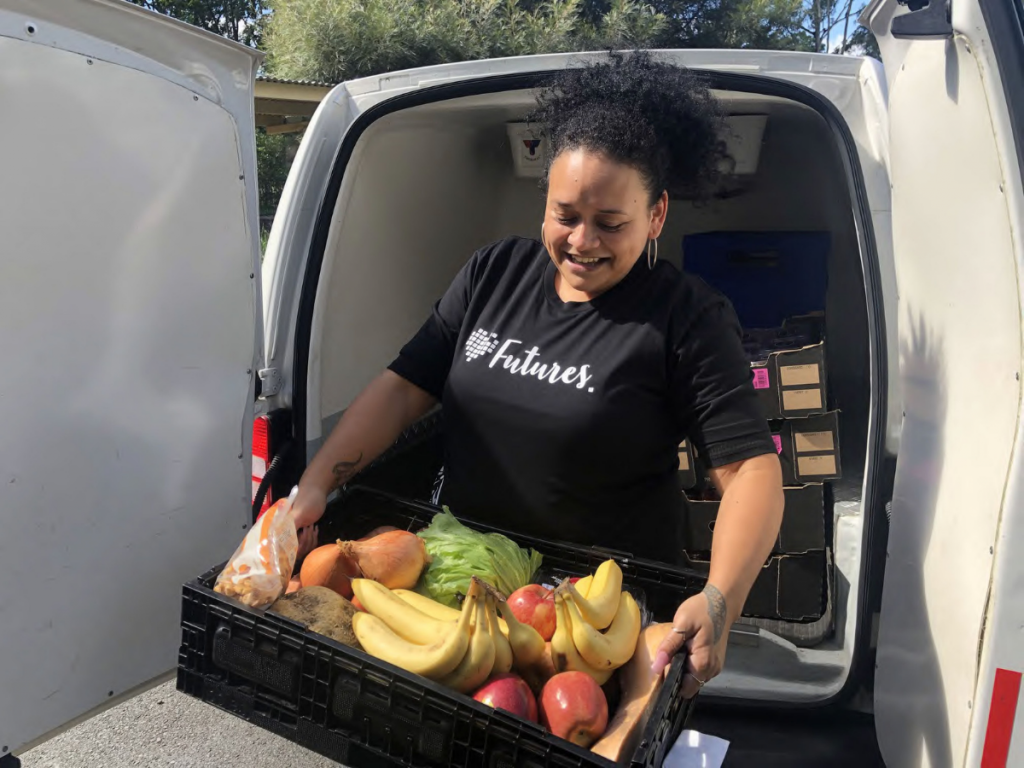
Minister for Emergency Services and Resilience and Minister for Flood Recovery Steph Cooke said the program, funded by the NSW Government, was established to strengthen groups that have played a critical role in supporting communities throughout COVID-19.
“These grants are being offered through the Resilience NSW COVID Regional Community Support (CRCS) program and are administered by the Foundation for Rural & Regional Renewal (FRRR),” Ms Cooke said.
“Grants of up to $50,000 will be awarded toward regional capacity building initiatives such as those that attract and retain volunteers and staff, train to enhance governance skills, build digital capacity and create partnerships that foster stronger, more resilient communities.”
Natalie Egleton, CEO of FRRR, said that regional organisations in NSW have gone above and beyond for their communities during the pandemic, especially when for many it was also on top of floods, fires and the mouse plague.
“Remote, rural and regional community groups and not-for-profits really stepped up in what were extraordinary times. We take our hats off to them for how they have persevered, especially in the face of so many challenges.
“The findings of our Heartbeat of Rural Australia study last year highlighted that many community groups were really fatigued and able to operate at only a fraction of their usual capacity. They were struggling to find volunteers and staff, and while many groups turned online, the digital divide that exists between urban areas and regional areas became really apparent, as did several other capacity constraints.
“This program has been designed in partnership with the NSW Government to enable community groups to address these issues and fill the gaps that became more evident during the pandemic. We know that every community is different, so it’s deliberately flexible and will support community groups to be better prepared in future,” Ms Egleton said.
To find out what can be funded through the capacity building stream, and to apply, visit https://frrr.org.au/ResNSW-Covid-Support.
Applications close 5pm AEST on Friday 29 April 2022.
Significant funding to rebuild and recover from COVID
The Foundation for Rural & Regional Renewal (FRRR) has welcomed a significant boost to its flagship Strengthening Rural Communities (SRC) grant program, following an investment of more than $5 million from the Australian Government.
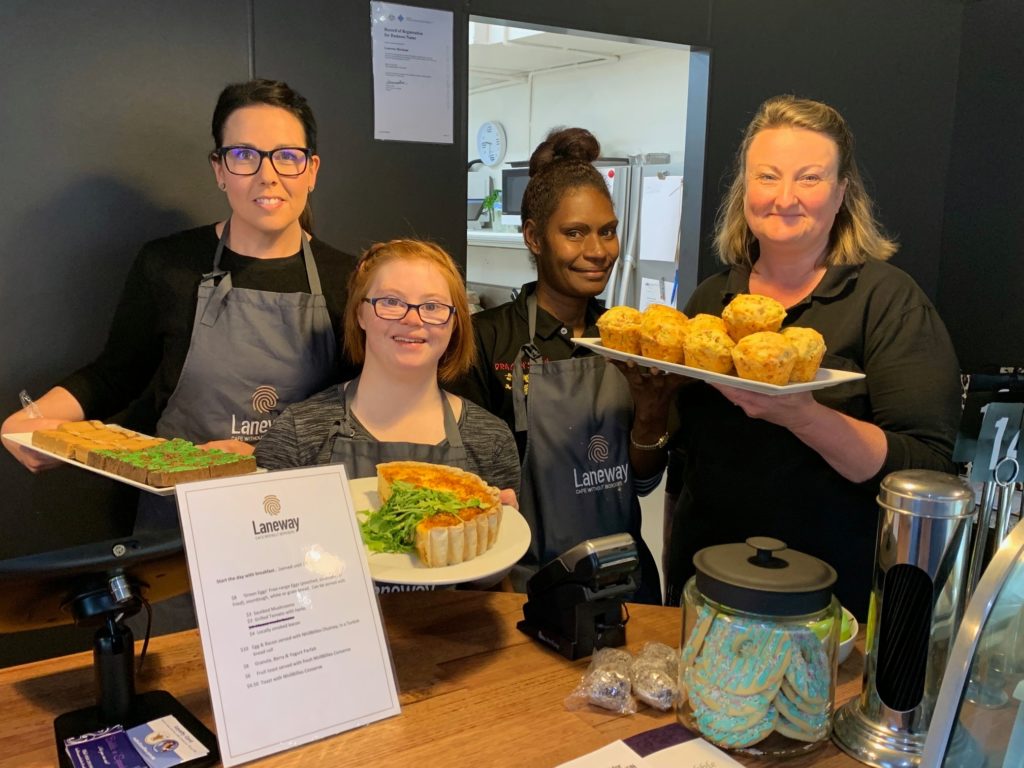
This funding, which will be available over the next two years, recognises the significant and long-lasting impacts of COVID and the localised effort needed to recover and rebuild vibrant remote, rural and regional communities.
From today, community groups and not-for-profit organisations in remote, rural and regional communities can apply for funding to support the recovery process, reduce social isolation, foster stronger, more resilient communities, or sustain these vital local organisations in their work.
The Australian Government’s support means that there will be $800,000 available in this round of SRC grants specifically for COVID-related projects. The COVID stream will have two tiers of funding – one will offer grants of up to $10,000 to groups working in communities of fewer than 50,000 people, while a second tier will offer grants of up to $50,000 for groups in remote, rural or regional communities (as defined by Australian Bureau of Statistics’ Australian Geography Standards).
Natalie Egleton, CEO of FRRR, said that the Australian Government’s investment is sorely needed and will be greatly appreciated by local organisations that have been struggling with raising funds, and coping with the effects of volunteer fatigue.
“At the end of last year, FRRR commissioned the Heartbeat of Rural Australia study, which confirmed that the pandemic has weakened the ability of community organisations to play their various roles in the community, at a time when, for many, demand for their services has increased.
“Many community groups that took part in the study – especially grassroots organisations with revenue of less than $50,000 – saw significant reductions in income as a result of not being able to run fundraising events and income-generating activities and, in some instances, funders redirecting their support. It’s also impacted the number of people able to volunteer, meaning that those remaining have been called on to do more, for longer. It’s no wonder people are exhausted.
“This program will help to rebuild rural communities by funding projects that respond to the ongoing impacts of COVID and will help communities get back on their feet.
“We’ve deliberately kept the SRC program flexible, as we know needs will be different from place to place, and from group to group. Projects eligible for funding could include supporting, training or attracting volunteers; running events; enhancing community facilities; developing services that assist people experiencing disadvantage; or purchasing equipment or resources that strengthen local organisations. We are very grateful for the Australian Government’s support and the commitment that they are showing to strengthen and rebuild rural communities,” Ms Egleton said.
In addition to the COVID funding stream, the SRC program still has grants available to support communities affected by the 2019/20 Black Summer bushfires. There is $650,000 available this round, through grants of up to $25,000. A third, more general stream of funding offers Small & Vital grants of up to $10,000 for initiatives that strengthen and support communities of 15,000 or fewer in remote, rural or regional areas.
To learn more about the program, and to apply, visit https://frrr.org.au/SRC. Applications close 31 May 2022 at 5pm AEDT.
When COVID restrictions hit Woomelang, the tiny Victorian town with a population of 201 was already struggling after being hit by major drought.
More than half the residents live alone, with many people having chronic diseases and some having mobility and travel issues. The closure of the town’s primary school and football club has reduced the interaction and connectedness of families and left community members fragmented. People on farms affected by the drought were working hard and spending a lot of time alone. So there was a clear need to create opportunities for social interaction.
A grant from FRRR’s Tackling Tough Times Together (TTTT) program, funded by the Australian Government, allowed Woomelang & District Bush Nursing Centre to do just that.
The Centre used the $5,000 grant to create ‘Meet, Eat and Play’, in an effort to relieve the social, emotional and financial stress facing the community.
The grant enabled the group to fund venue hire, staff and catering to create several lunchtime and evening social gatherings, which included themes such as Feast and Film, Xmas in September, Biggest Morning Tea, volunteer lunches, COVID clinics, Crafty Ladies and a Women’s Health Morning Tea.
Centre Manager Carol Paech said idea behind the project was for people to ‘meet, greet, eat and have fun’. It meant single people did not need to eat alone. COVID restrictions meant they couldn’t hold all the planned monthly gatherings but over the course of 2020-21 they were able to host a variety of catchups.
“The project was so challenging because of lockdowns and ever-changing restrictions. We ended up doing a lot of home deliveries, and part of the deal was that the residents were encouraged to wear a festive outfit or have Christmas decorations to get into the spirit of things, just to make it a bit of fun,” she said.
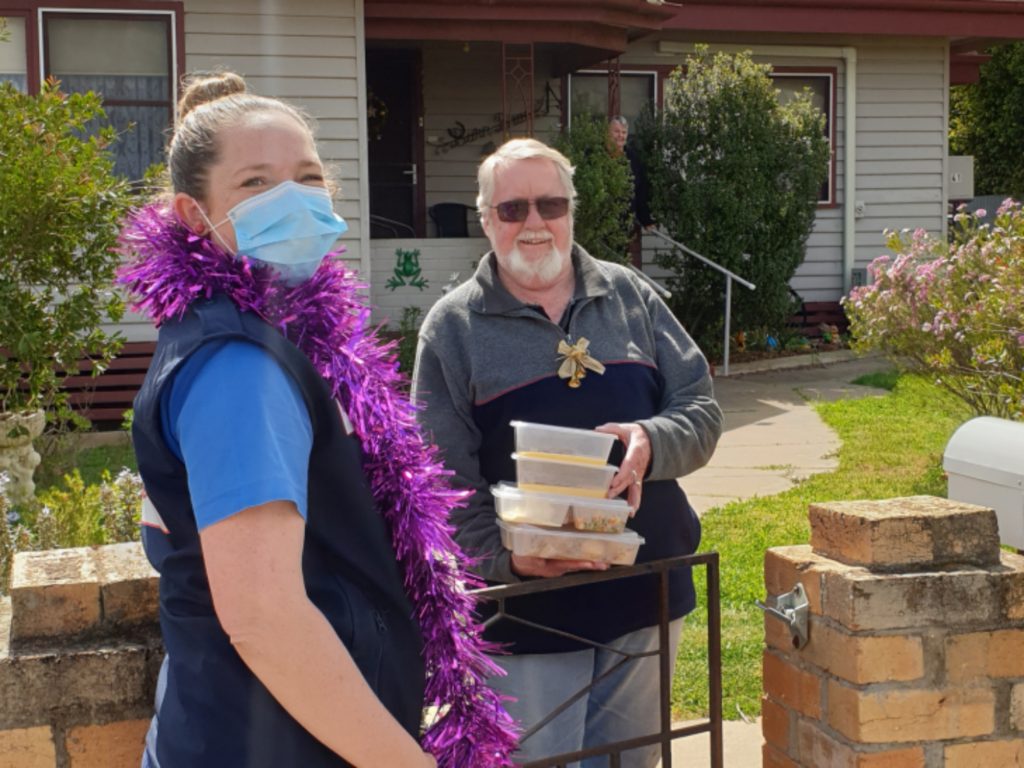
A grant originally intended to help the Gong-Dal Aboriginal Corporation increase opportunities for the Gapuwiyak community in East Arnhem Land was partially diverted to help the community respond to COVID.
The FRRR Westpac Rural Communities Grant of $10,000 was originally intended for tourism business education and mentoring programs in the Northern Territory, to support the organisation in its capacity and capability as it embarked on a niche tourism venture. However, as 2020 unfolded, the organisation recognised that there was a more urgent need to support the community in managing and responding to the emergency that COVID had created.
General Manager Juli Cathcart said that half the grant was used to employ experienced facilitators to run workshops, develop resources and support community engagement with the Gapuwiyak and Homelands COVID-19 Dhäwu Ganamirr Mala (COVID-19 Both-Ways Community Engagement Group).
The second half was directed toward the original purpose and used for facilitating workshops, recording and documenting the Miriŋu Dhukarr – Warriors’ Walk – cultural tourism project.
The COVID-19 response group was formed by Yolŋu leaders to provide intercultural advice to government agencies and other stakeholders and ensure culturally safe and appropriate community engagement.
The facilitation included education and training for 15 local Yolŋu people about COVID and a Local Pandemic Action Plan and Outbreak Management Plan. It included key materials in plain English and Djambarrpuyŋu, the local Indigenous language, as well as ‘just-in-time’ advice and support for the local police, clinic and other stakeholders.
This work empowered 900 local Yolŋu community residents in Gapuwiyak and Homelands by giving them knowledge and understanding they needed to keep their families informed of COVID and the NT government responses.
“This ensured a highly responsive and culturally safe COVID Local Pandemic Action Plan, and directly contributed to the development of respectful and trusting relationships between local Yolŋu leaders and community members, and our stakeholder organisations and employees in relation to the local management of COVID and safety of Gapuwiyak and our Homeland communities,” Juli Cathcart said.
“Feedback received was that as a result of this work, local Yolŋu community members felt respected, well informed, heard, assured, secure and safe in a time of great uncertainty, which improved everyone’s quality of life. This work was also key in the development of trusting relationships between stakeholders and Yolŋu community members. The very high uptake of vaccinations in Gapuwiyak and Homelands (80% of eligible community members) compared to other Aboriginal communities and the rest of Australia in 2021 can also largely be attributed to this work. This is a potentially life-saving outcome in a community where chronic disease placed at least 60% of our population in extreme danger if they should contract the coronavirus.”
The second part of the funding supported the development of a museum and a Yolŋu cultural tourism initiative comprising a series of heritage trails across Arnhemland. They follow the foot patrols of the Miriŋu (Yolŋu warriors) who formed the first Northern Reconnaissance Unit with Dr Donald Thompson and defended the Northern coastline during WWII. A high-quality documentary about the Miriŋu Dhukarr Project will also to attract funding to enable the development of this Yolŋu cultural heritage trail and tourism initiative that is of huge local cultural and historical importance as well as of National historical significance.
It is also funding ongoing workshops to enable Yolŋu Elders and Leaders to work with both Yolŋu and Balanda soldiers and veterans, as well as young Yolŋu people to ensure the intergenerational transfer of important and endangered Miriŋu cultural traditions, stories, knowledge and skills.
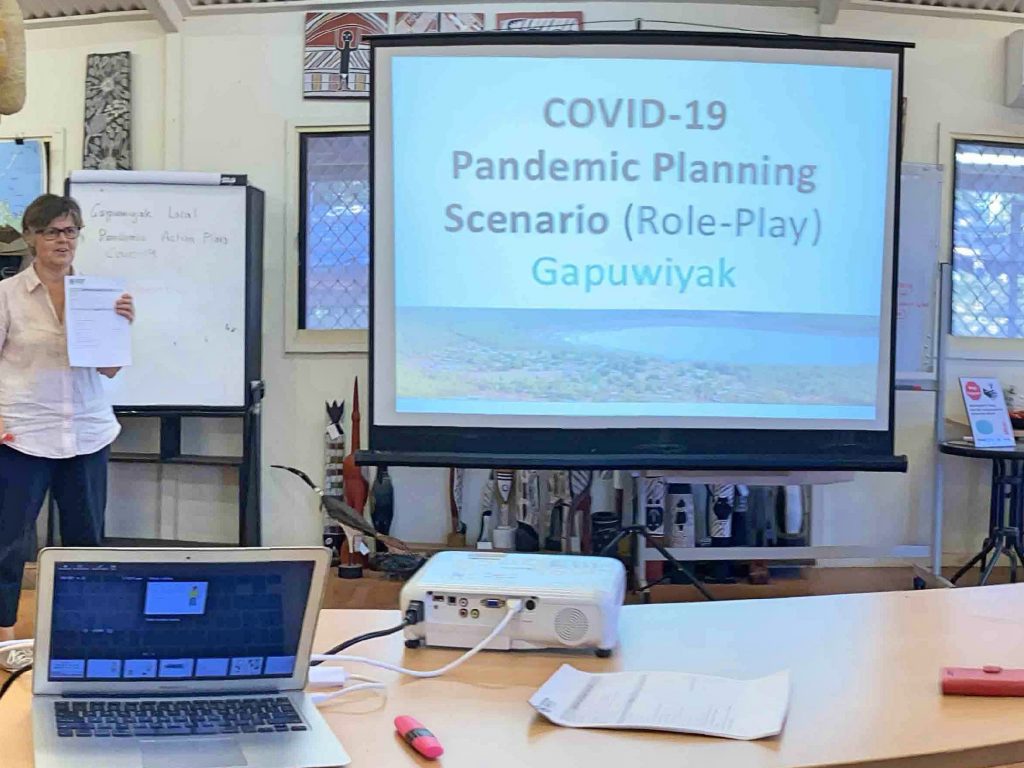
When COVID lockdowns hit, it created issues for Boys to the Bush, a program that provides support for disadvantaged youth from a variety of regional and rural communities in NSW.
Distance learning and daily life disruptions created challenges. Camps were cancelled and the Boys to the Bush program was impacted at a time when disengaged senior school and school leaver youth required work experience and guidance the most.
CEO and Director Adam DeMamiel said restrictions impacted the way Boys to the Bush normally runs its program, which involves “packing lots of kids in utes and minivans to head out to workplaces and farming properties for MENtoring programs.”
A FRRR Westpac Rural Communities Grant of $10,000 helped ensure the boys, aged 10 to 19, could continue to connect and learn life skills, as well as earn accreditation toward employment in their community when restrictions lifted.
The funding enabled them to purchase workshop equipment for applied construction and maintenance projects in Albury, including much needed power tools, a chainsaw and a hydraulic log-splitter. The equipment is used for building furniture, making repairs to infrastructure and furniture and for their woodcutting social enterprise, ‘Tooled for (Winter) fuel’.
The program gives the young people an opportunity to visit properties in the region to cut trees, bringing the wood back to the Boys to the Bush shed to be split and stacked. The wood is both sold to community members as well as donated to people in need. As their skills develop, they can work on other woodworking projects for themselves and gifts.
“These tools have been used regularly by over 200 kids in the past 12 months alone. This is more than double what we expected.
“Tooled for Fuel” significantly boosts our capacity to provide a safe environment for working on applied construction and maintenance projects. We can welcome guest mentors to demonstrate techniques and fundraise for a sustainable future for Boys to the Bush.
The program helps the young people participate and become more engaged in their community, which Mr DeMamiel said can play a major part in turning lives around and has potential to end generational cycles of disadvantage.
“I am most proud of our ability to give back to the community. Instead of us asking the community to support us all the time we are able to in a small way donate things of value back,” Mr DeMamiel said.
